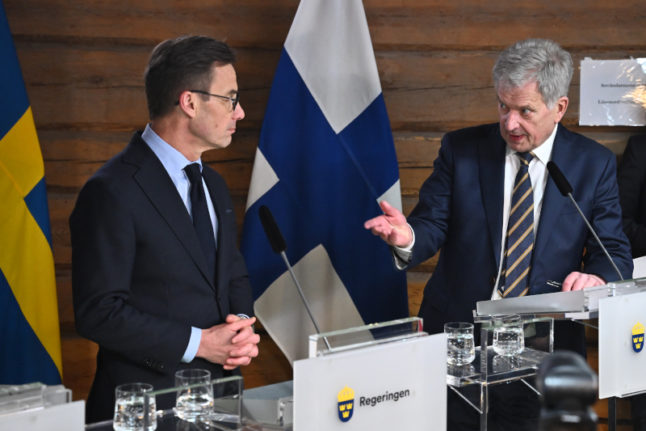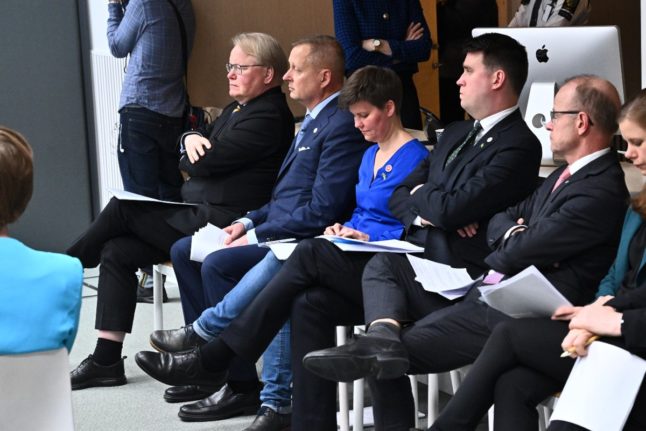Both Finland and Sweden dropped their decades-long policies of military non-alignment and applied to join the trans-Atlantic defence pact last May, in the wake of Moscow’s invasion of Ukraine.
However, Sweden has had several diplomatic spats with Nato member Turkey, which threaten to delay its membership bid and chances of joining at the same time as Finland.
Finnish lawmakers approved legislation affirming that Finland accepts the terms of the Nato treaty by 184 votes against seven, with one abstention and seven MPs not being present.
“The vote is an important step on our Nato path. The security of the homeland is a common cause,” Defence Minister Antti Kaikkonen wrote on Twitter.
Joining Nato requires ratification from its 30 members, and Hungary and Turkey remain the holdouts.
Finland’s parliament pushed for the legislation to be passed pre-emptively, ahead of April 2nd general elections, to avoid the ratifications coming in before a new government has been formed.
Markus Mustajärvi from the Left Alliance party – which has been vocal in its Nato opposition in the past – had asked lawmakers to strike down the bill, citing a lack of guarantees that nuclear weapons would not be placed in Finland.
Hungary debates entry
Hungary began debating Finland and Sweden’s Nato application bids on Wednesday, with the ratification set for between March 6 and 9, although delays are expected.
Turkey announced Monday that negotiations with Finland and Sweden would resume on March 9th, after talks with Sweden were dropped over a row about protests held in Stockholm, including the burning of the Quran in front of Turkey’s embassy.
Turkey also accuses Sweden of providing a safe haven for what it considers “terrorists”, in particular members of the Kurdistan Workers’ Party (PKK).
Turkish Foreign Minister Mevlüt Çavuşoğlu said on Monday that Ankara now looked favourably on Finland’s bid, adding that “we may separate Sweden and Finland’s membership process”.
Finland alone
Passing the bill does not mean Finland will automatically join Nato after ratification by Turkey and Hungary, but it puts in place a deadline for how long it can wait for its neighbour.
The government’s chancellor of justice, Tuomas Pöysti, said that after the bill is approved by the parliament, the president can wait a maximum of three months to sign it.
Finland’s President Sauli Niinistö told reporters last week that he intended to sign the law “as soon as it is approved by parliament,” but “if there are practical reasons, I can wait”.
“But not beyond the elections” set for April, he added.
A majority of Finns want to go ahead and join Nato even if Sweden’s membership is delayed, a poll suggested in February.
Sweden’s Prime Minister Ulf Kristersson has said Finland joining alone could “complicate” the close military cooperation between the Nordic countries.
On Tuesday, Finland also announced the start of construction of its planned 200-kilometre fence on the Russian border, after tensions with Moscow have risen.
Article by AFP’s Elias Huuhtanen



 Please whitelist us to continue reading.
Please whitelist us to continue reading.
Member comments